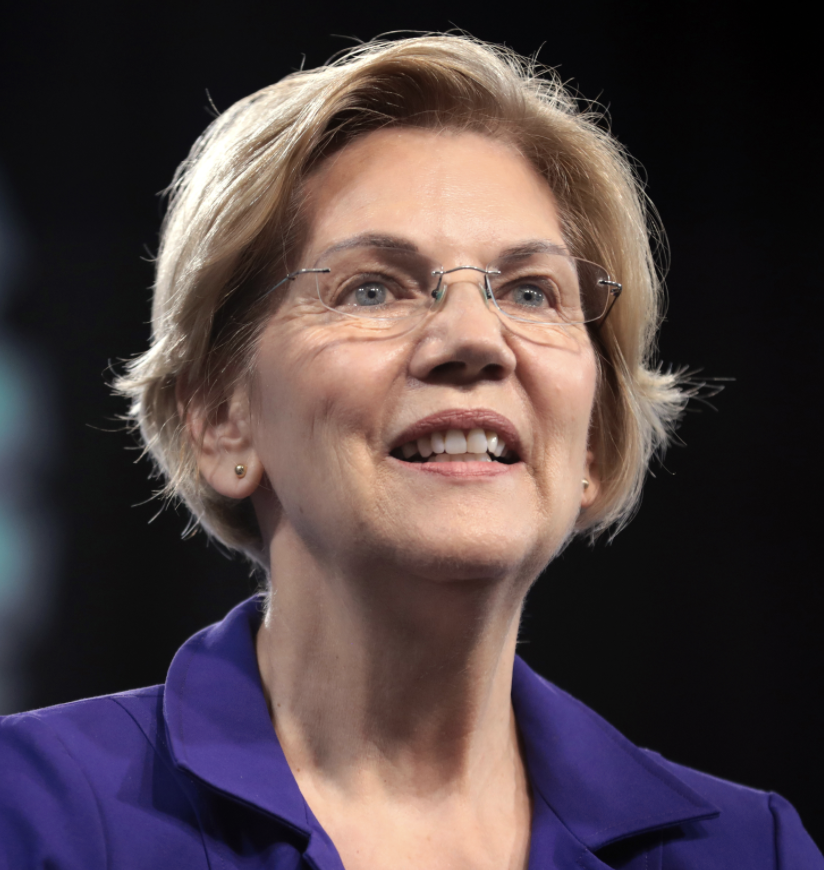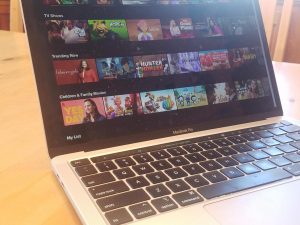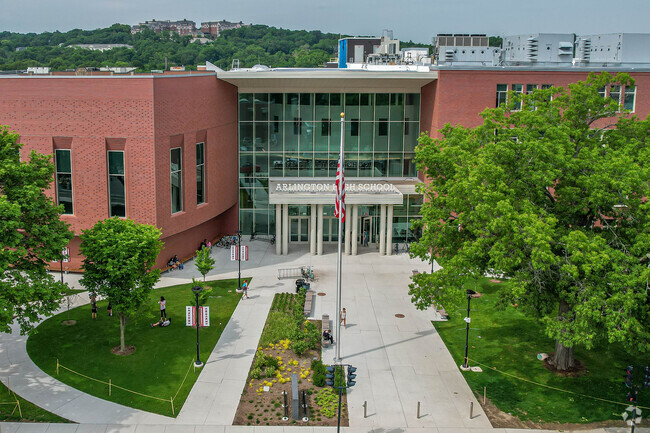Senator Warren Fields Questions From Constituents on Covid-19, Race, Climate Change, and Other Issues in Virtual Town Hall
February 27, 2021
This past week, while Massachusetts public schools were on February break, the Senate was also in recess. Senators around the country took the time to connect with and listen to the concerns of people in their states, and Massachusetts Senator Elizabeth Warren was no exception. On the evening of Wednesday, February 17, Warren and her staff held a town hall meeting over Zoom. During the hour-long meeting, the Senator updated Massachusetts residents on the Covid relief bill currently moving through Congress and then took questions from attendees on the most pressing issues currently facing the nation.
Sen. Warren began the meeting by voicing her support for President Joe Biden’s
$1.9 trillion Covid-19 relief package. She emphasized that “Congress must act now” on providing support for financially struggling Americans, distributing vaccines, and providing aid for state and local governments. Warren outlined three main components of the relief package: equitable and efficient vaccine distribution, rebuilding the economy for a post-pandemic world, and safely reopening schools in a way that keeps all students and staff safe. She then moved on to questions and comments from meeting attendees. Many were concerned about the pandemic’s disproportionate impact on Black, Latino, Indigenous, and Asian communities. Warren responded to a question about making sure that vaccines are accessible to communities of color by underscoring the importance of building trust in the efficacy of the vaccines with these groups, who have had a long history of being lied to, mistreated, and ignored by the U.S. healthcare system. She also discussed how at the beginning of the pandemic, there was no data collected on the race of people getting Covid tests, meaning that statistics on how the virus was affecting communities of different races could not be analyzed. “It’s important to collect the data on every piece of this,” she said. Warren then proceeded to detail how she had worked with Massachusetts Congresswoman Ayanna Pressley at the beginning of the pandemic to collect information about race with Covid tests. Warren said that in March, the two of them had been “writing letters and drafting legislation” in order to require the race of people getting Covid tests to be recorded. She also emphasized how the pandemic has exacerbated racial inequalities. These inequalities are manifesting themselves in infection and death rates, testing access, and vaccine distribution. Warren said that racial inequality as a whole must be remedied for a more equitable society after the pandemic. “One thing we can’t do when this crisis abates is say ‘let’s go back to the way things were before.’ We can no longer pretend we just didn’t know.”
In addition, the Senator took questions about racial justice issues unrelated to Covid. During this discussion, a fifth-grader asked Warren to help her organize a Black Lives Matter protest. Warren agreed to help and commended the girl’s activism, telling the meeting group that “we need to be actively working to root out racism.” Towards the end of the Q&A period, one attendee asked the Senator what she is doing to reform the U.S. policing system at the national level. The issue has become a pertinent topic in recent months and years due to police killings of Black people. Warren responded by emphasizing the need for the Senate to pass the 2020 George Floyd Justice In Policing
Act, which aims to set a national standard for use of force, ban police officers from using chokeholds, and put an end to qualified immunity for police officers. [1]
Another important topic that came up during the meeting was climate change when an attendee asked how Congress can pass climate change legislation and what can and should be done based on the margins that each political party has. Warren took the opportunity to highlight the urgency of the climate crisis and explained what must be done to mitigate it. “What we need to do on the climate front is everything,” she responded. “We are in an all-of-the-above moment […] There is no single magic bullet here.” She discussed the importance of easily accessible climate research; clean, unionized jobs in the U.S.; and international cooperation to reduce the amount of carbon in the air. However, she did not go into detail about how Congress would pass bold climate legislation when Democrats only have slim majorities in each chamber.
A number of other topics were discussed during the town hall. Warren expressed her support for eliminating the Senate filibuster, which allows for unlimited debate on bills in the Senate. The filibuster can prevent climate legislation and democratic reforms from passing in a timely manner. The Senator demonstrated her enthusiasm for making Washington, D.C. a state and for student loan debt forgiveness. She listened to a constituent talk about how she was having trouble affording her insulin, responding that “drug companies are making billions of dollars in revenue off the backs of people like you.” Warren made sure to mention that President Biden is able to lower drug costs with an executive order. The Senator also discussed her proposed essential workers Bill of Rights, which includes a $15 minimum wage, hazard pay, childcare, and more for essential workers. Warren said that she was hoping to get “some more pieces” of the Bill of Rights into the next Covid relief package. The Senator then concluded by thanking everyone who attended the meeting and asked questions. “This is what democracy is supposed to be about,” she said of the town hall meeting. “I feel hopeful […] that we can make real change.”
[1] Qualified immunity is a Supreme-Court established judicial doctrine that prevents federal officials from being sued if they violate someone’s constitutional rights unless the official broke “clearly established law.”








